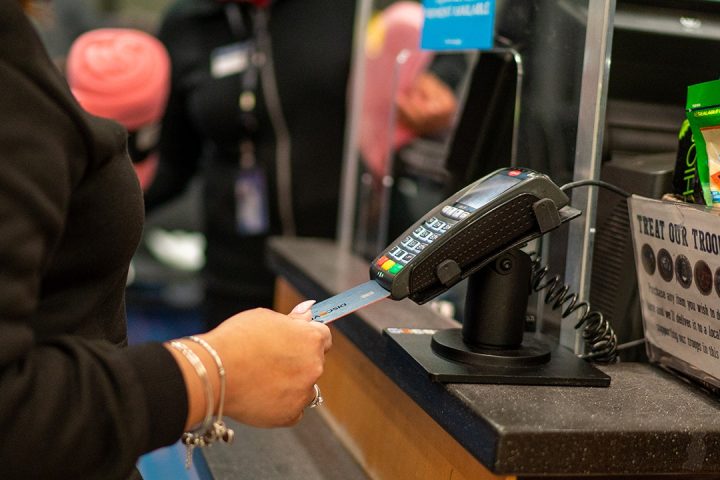I appreciate and learn from your column, and read it religiously. Several of your recent readers have asked you questions about wills or what happens when someone dies without a will. I would like to add my experience to the scenarios you have already addressed in recent months, as it adds to your discussion of the consequences of avoiding proper estate planning.
A court appointed attorney once called to inform me that my mother’s cousin died without a will. The deceased had no children, spouse or siblings. The estate was being divided on the basis of closest kin, which, in this case it was the deceased person’s six cousins.
An attorney contacted me. He was tracking down distant relatives of the deceased, because most of the six cousins were no longer living. In fact, only one cousin outlived the deceased person. The offspring of each deceased cousin were collectively awarded a share equal to 1/6 of the deceased’s estate minus court and attorney fees.
Therefore, after about a year from the onset of this person’s death, my siblings and I each received an inheritance of about $9,000. The one cousin who was still alive at the time was legally entitled to 1/6 of the estate, close to $60,000. The law does not take into account whether a potential heir deserves, or needs the inheritance, but rather uses subjective formulas, as anyone would expect.
Court documents
This makes sense, but I can’t help but feel that the deceased cousin would not have wanted the bulk of their estate to be awarded to this extremely wealthy cousin who was advanced in age and had a personal estate worth over $30 million. This person received the largest share of the deceased’s estate.
After the probate process ended, I requested a copy of the court papers to learn more about my distant relatives. That’s when I got an unexpected surprise: The court papers included a document labeled “last will and testament” signed by an attorney and by the deceased person, leaving their entire estate to my siblings and I, as our mother was the cousin with whom the deceased had been closest to.
When I asked the attorneys why they told me there had been no will, they pointed out that the will lacked a witness signature. My mother‘s cousin had wishes, expressed those wishes in writing, signed the written will in front of an attorney, but did not have the signature witnessed.
As I learned through this experience a signed will is not legally a “will” even if it is prepared by an attorney, and labeled last will and testament, unless it is also witnessed. Perhaps this is true only in our state but it was a shocking lesson.
I hope that individuals who think their handwritten signed notes will be sufficient think again, as you have so often cautioned. The cost of an attorney’s fee to prepare an official will is well worth the peace of mind it provides.
Yes I’d rather my hard earned savings go to people and causes that matter to me, and not to distant relatives who are so financially secure that they would not benefit from inheriting a portion of my estate. Preparing a will or trust allows us one final chance to make a difference for others. Personally, I’d like to get that right as my final act.
What is your take?
Glad to Have A Legal Will
Dear Glad,
Your story is both alarming and, I suspect, not that uncommon.
A trust and estate attorney once told me that she prepared the will of an extremely wealthy man, and when she visited his office, he showed it to her and where he kept it. He was happy with all of the time they had spent putting it together, and was glad he had finally divided his estate in a manner that he believed was fair and equitable, and reflected his wishes, charitable interests, and his relationship with his closest friends and relatives. There was just one problem: It was still in a sealed envelope where, he believed, it was safe. She pointed out the obvious and easy mistake, “You haven’t signed it.” If a person with millions of dollars can make such a mistake, who’s to say others forget the importance of their John Hancock?
You’re correct that the legal framework that determines whether a will is valid varies by state. In New Jersey, for instance, “A will must be signed by the deceased or by someone who had the authority to sign for the maker of the will,” according to Bratton Estate & Elder Care Attorneys. “The will must also be signed by at least two other witnesses. In order for the signature of these witnesses to be valid, the signees should add their signatures to the document as soon as possible. New Jersey will accept handwritten wills whether or not they are witnessed, provided that it can be clearly shown that the document was intended to be the deceased’s will. The document should also be clearly identifiable as written in the deceased’s own handwriting.”
Believe it or not, some people still wish to write their wills by hand, but holographic or handwritten wills are only legal in about half of the states in the U.S., including California. Whether it’s written or typed, always write your will under the guidance of a trust and estate attorney. Word of warning: It’s not worth writing a will on the cheap or downloading one from the Internet. Too many things can go wrong. Sometimes, people leave possessions that no longer exist. (That Rolls Royce? He sold it to pay the taxes on his home.) Or they leave their entire fortune to one lucky cousin and five more show up to claim their share of the estate. (“I leave my entire estate to my cousin, John Murphy.” Is there more than one cousin named John Murphy or, worse, some people have neglected to name the person entirely.)
Online wills are often free or low-cost, but may have inadequate language. Words matter. “If a will states that property should pass to a man’s ‘surviving wife and children,’ what happens if the man had two ex-wives and several children from other marriages?” asks the law firm Landskin and Ricaforte. “On the other hand, suppose the same man had three daughters and left ‘equal shares of the estate to my descendants.’ The will was made when his children were teenagers, but two of them had a child of their own at his death. The term ‘descendants’ includes children, grandchildren, and great-grandchildren, making it possible for his children and grandchildren to receive a fifth of the estate — even though he intended to give a third to each daughter.”
It also may be that the terms of a will deserve to be overturned. You can, for instance, typically contest a will or trust on the following grounds: lack of testamentary capacity, undue influence from a family member, and improper execution, which is exactly what happened to your distant cousin’s will. If he had signed his own will, his estate would have been distributed according to his wishes, and you would likely be in a more comfortable financial situation. I have received too many letters about relatives or “new friends” or even caregivers who isolate elderly people, put themselves on their bank accounts as co-signers or co-owners, and coerce the person to write a new will.
The biggest mistake many people make is that they don’t write a will, and leave no estate plan at all. Less than half of Americans have made a will, although three quarters of people 65 and over have made one, according to a 2021 survey by Gallup. Just 20% of adults under age 30 have a will. “Upper-income Americans are much more likely than lower-income Americans to report having a will,” Gallup said. College graduates and white Americans are also more likely to have a will. After building a lifetime of wealth, regardless of whether it’s $500,000 or $5 million, it is a shame to leave it up to state laws to decide how it’s distributed.
You can email The Moneyist with any financial and ethical questions at [email protected], and follow Quentin Fottrell on X, the platform formerly known as Twitter.
Check out the Moneyist private Facebook group, where we look for answers to life’s thorniest money issues. Post your questions, tell me what you want to know more about, or weigh in on the latest Moneyist columns.
The Moneyist regrets he cannot reply to questions individually.
Previous columns by Quentin Fottrell:
My wife received a $1 million payout from her employer when she retired. Am I entitled to 50% of that if we divorce?
I’m a 61-year-old single librarian and ‘proud’ Democrat from Maine. Should I move to Florida like Jeff Bezos?
I cosigned my boyfriend’s mortgage, but I’m not on the deed. I didn’t want to marry again after a costly divorce. How do I protect myself?
Read the full article here







